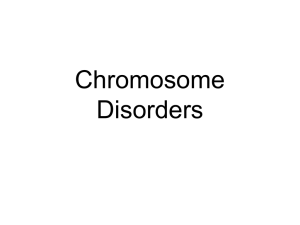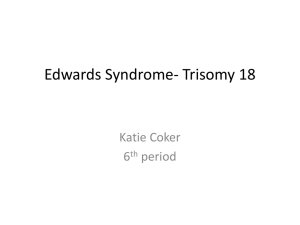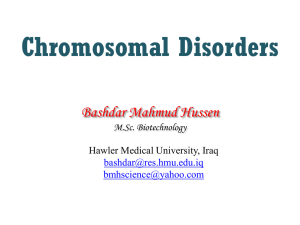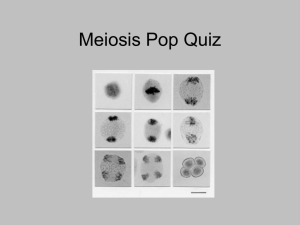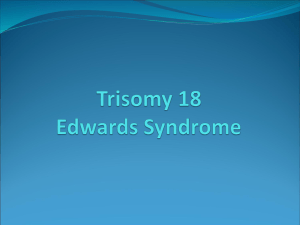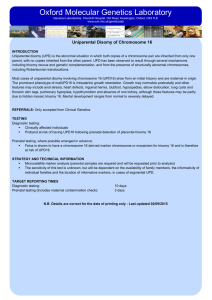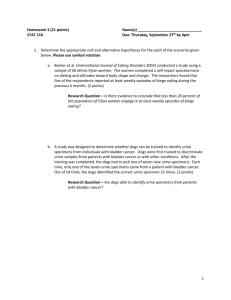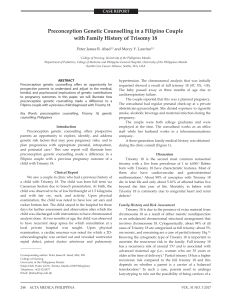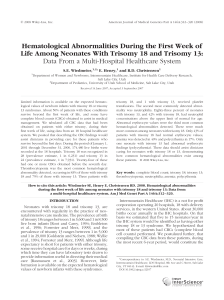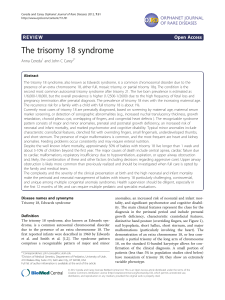First Trimester Screen
advertisement
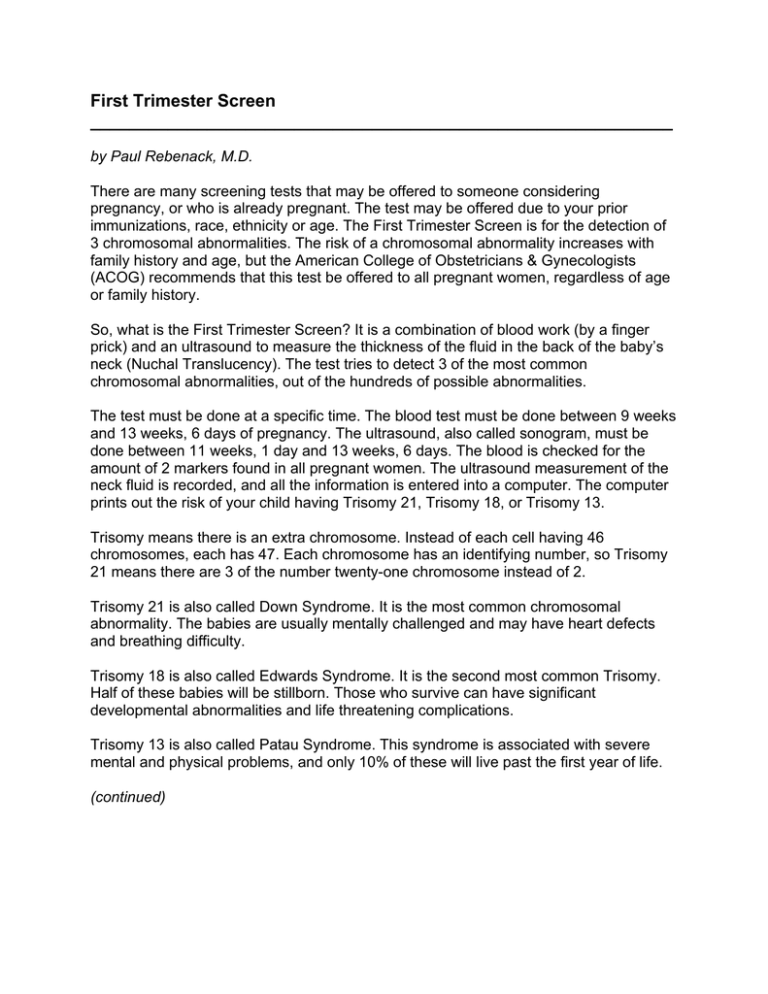
First Trimester Screen ____________________________________________________________ by Paul Rebenack, M.D. There are many screening tests that may be offered to someone considering pregnancy, or who is already pregnant. The test may be offered due to your prior immunizations, race, ethnicity or age. The First Trimester Screen is for the detection of 3 chromosomal abnormalities. The risk of a chromosomal abnormality increases with family history and age, but the American College of Obstetricians & Gynecologists (ACOG) recommends that this test be offered to all pregnant women, regardless of age or family history. So, what is the First Trimester Screen? It is a combination of blood work (by a finger prick) and an ultrasound to measure the thickness of the fluid in the back of the baby’s neck (Nuchal Translucency). The test tries to detect 3 of the most common chromosomal abnormalities, out of the hundreds of possible abnormalities. The test must be done at a specific time. The blood test must be done between 9 weeks and 13 weeks, 6 days of pregnancy. The ultrasound, also called sonogram, must be done between 11 weeks, 1 day and 13 weeks, 6 days. The blood is checked for the amount of 2 markers found in all pregnant women. The ultrasound measurement of the neck fluid is recorded, and all the information is entered into a computer. The computer prints out the risk of your child having Trisomy 21, Trisomy 18, or Trisomy 13. Trisomy means there is an extra chromosome. Instead of each cell having 46 chromosomes, each has 47. Each chromosome has an identifying number, so Trisomy 21 means there are 3 of the number twenty-one chromosome instead of 2. Trisomy 21 is also called Down Syndrome. It is the most common chromosomal abnormality. The babies are usually mentally challenged and may have heart defects and breathing difficulty. Trisomy 18 is also called Edwards Syndrome. It is the second most common Trisomy. Half of these babies will be stillborn. Those who survive can have significant developmental abnormalities and life threatening complications. Trisomy 13 is also called Patau Syndrome. This syndrome is associated with severe mental and physical problems, and only 10% of these will live past the first year of life. (continued) The First Trimester Screen can detect up to 91% of Down Syndrome, and 95% of cases of Trisomy 18 and 13. The test results are normal in 95% of all people screened. This does not eliminate any chance of these abnormalities, but means you have a very low risk of having a baby with these conditions. If the test comes back with a positive screen, it means that your baby has an increased risk of having one of these conditions. If you have a positive screen, 5% of the time the test is incorrect, and your baby will not have one of these 3 abnormalities. An additional ultrasound will be performed, and your doctor may recommend specific genetic testing of the baby. Remember, a screening is just that. It is to help in the diagnosis of Trisomy 21, 18, or 13. It is just a screening test. Paul Rebenack, M.D.
